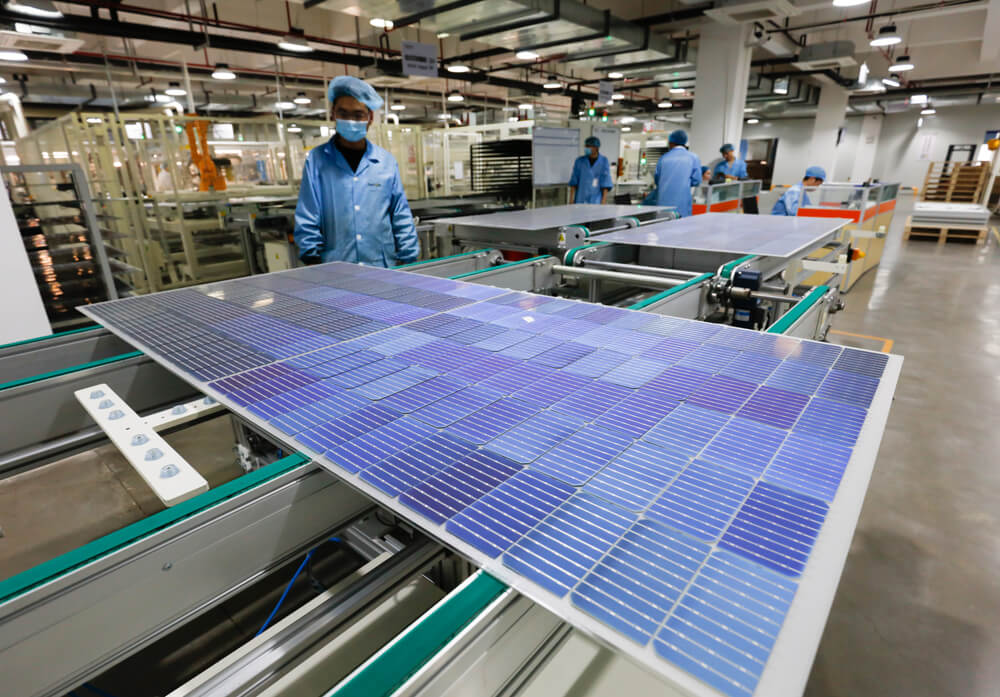The European Union has been searching for a way to return to producing solar panels as a significant part of the plan to achieve the green transition goals and free itself from dependence on China regarding the use of critical materials and technologies.
Not so long ago, the EU was the global leader in solar energy production equipment, but in the last decade, it has handed over its dominance to China.
The European return to former positions is under way. It will be complicated, long-lasting and expensive. However, among the members of the bloc and its largest economies, there is already an agreement to proceed that way.
Europe has decided to pay because the stakes are high, particularly its ambition to remain a global leader in the transfer to sustainable energy sources. A significant prerequisite for this is the reduction of the current high dependence on the import of Chinese equipment.
The European Parliament and the EU Council will continue negotiations on a plan to support the domestic green technology industry next Monday.
Harmonisation started last December, and for now, it has been rapid. It has been primarily conducted at the technical level, down to the technical specifications and will continue in early February.
The political agreement has already been made in the triangle of the EU Commission, the Parliament and member states. If this pace continues, the Net Zero Industry Act could be passed in the next few months, certainly before the European Parliament elections next June.
Are the goals achievable?
The goal is for the EU to produce at least 40% of new solar technologies by 2030. The financial mechanisms which would stimulate the return of panel and equipment production have been launched - tax incentives, loans, and guarantees depending on the business size.
This will be costly for the EU's poor industrial policy of a decade ago when the growing solar manufacturing sector neglected domestic panel producers and turned to massive and cheaper imports from China.
At that time, the EU tried to stop the dependence on Chinese imports by introducing tariffs on imported solar panels, but this defensive policy produced almost no results.
Today, Chinese manufacturers occupy almost 80% of the global solar panel market, and the EU is one of the largest buyers
Today, Chinese manufacturers occupy almost 80% of the global solar panel market, and the EU is one of the largest buyers. In the first half of 2023 alone, it imported solar modules with a total capacity of 85 gigawatts from China.
The participation of European producers in the total installed capacities for solar energy is minimal. European Commissioner for the Internal Market, Thierry Breton, said that 60 GW of solar capacity was installed in the EU last year, of which only 3% was produced in the Union.
"We are more committed than ever to boost European manufacturing of solar panels along the whole value chain with favourable regulatory and financing conditions”, said Mr Breton at the annual meeting of the European Solar PV Industry Alliance.
The association was founded in 2022, with the support of the EU, to stimulate the domestic production of equipment for solar power plants, raise its capacities and complete supply chains.
Addressing the Chinese challenge
However, the EU market must overcome significant obstacles to achieve complete or tolerable independence from Chinese suppliers. The low price of Chinese panels is one of the bigger ones since Chinese products are by a third cheaper than European ones.
This pressure of low prices shows no signs of decreasing. On the contrary, Chinese companies have been increasing the production volume even more, which is a sure indicator that they will continue to dominate the global market with large quantities and lower prices.
 Chinese companies have been increasing the production volume, which is a sure indicator that they will continue to dominate the global market with large quantities and lower prices
Chinese companies have been increasing the production volume, which is a sure indicator that they will continue to dominate the global market with large quantities and lower prices
The European response is late, and will be more expensive than it would have been a decade ago when there was no effective industrial policy.
The new green industrial policy that will be part of the Net Zero Industry Act will be a significant topic in the forthcoming elections for the European Parliament (June 6-9).
The acceleration of the green transition that it foresees is the good side of this significant regulation, and there is every chance it will have broad approval among European voters, who keep green politics high among their priorities.
However, they will not be satisfied that achieving green goals would require substantial financial support packages, guarantees, and subsidies, which would entail, amongst other things, increasing energy bills for both consumers and businesses.